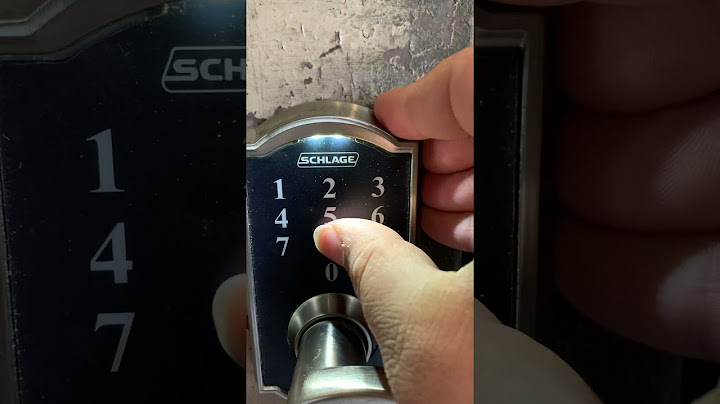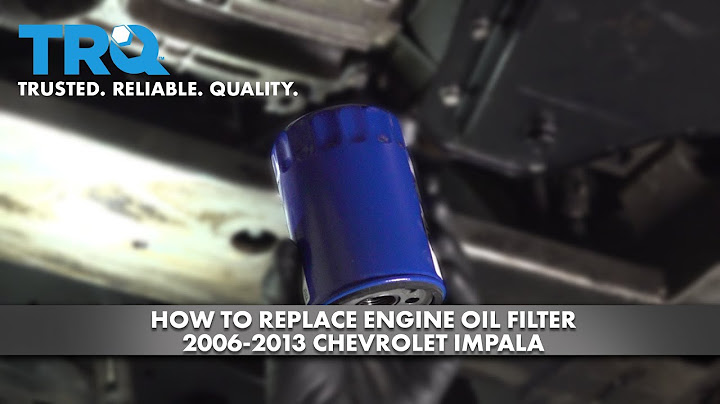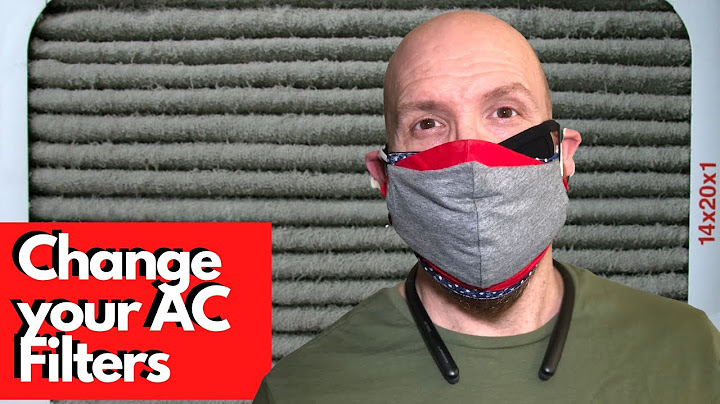Air purifiers are able to remove dust and allergens from the home, so long as they’re well-maintained — the key here is making sure the filters are doing their job. We’re going to help you keep them in good working order with tips on replacing filters when necessary. Show
Contents
How long do filters last in air purifiers? The life of a filter will depend on its type and the quality of the air it’s purifying. To give your filter a longer life, look for air purifiers that have a pre-filter. This element can catch larger particles before they even get to your filter, but they will likely need more routine cleaning. You should replace fiberglass filters every month. They’re a low cost option, but you pay with the need to swap them out regularly. Pleated polyester filters last just about as long and are a bit more expensive than fiberglass — though they’re better at catching particles. HEPA filters can last six months or so, while some people like to replace theirs every one to three months. Activated carbon filters can last between three to six months. Electrostatic air filters can last for years. Again, these estimates will vary by air purifier model and the conditions of your home. How often should I replace my air purifier filter?There will be a few signs to help you determine precisely when it’s time to replace an air purifier filter. A change in color is not necessarily an indicator of replacement need. HEPA filters might look dark after being active for only a short time, but they’re still working just fine. So long as you have continual airflow, the filter is doing its job. That said, reduced airflow and higher power bills can be indications that your purifier is working hard and being blocked by a clogged filter. If you want to get really technical about monitoring this, you can use an anemometer to routinely check the airflow of your purifier. A clear indication that a filter has become overwhelmed is if dust and particles are seen around the air purifier’s vent. These can be especially visible if you drape a white sheet over the purifier and let it run for an hour. The main challenge with clogged filters is slow air flow. As particles accumulate, it’s harder for air to get through, which can lead to increased purifier and electricity usage. This can also put a strain on the machine, depending on how badly the filter needs replacing. Can you wash and reuse air purifier filters?You can only wash and reuse some air purifier filters; assume a filter cannot be washed unless it says explicitly on the label that you can. Rinsing a non-washable filter can ruin it, so at most, use a vacuum to remove residue from a filter that you’re unsure about. Keep in mind that HEPA filters — the most common for air purifiers — trap particles throughout its fabric, not just on the surface. Simply giving it a wipe on the top layer won’t remove everything caught by the filter, and at worst, doing so will dislodge captured particles and emit them into the airstream. Given the option, washable filters are an environmentally friendly choice that avoid the need to throw out old filters. Just make sure the manufacturer vouches for their washability before you go putting your filter under running water. Do air purifiers need their filters replaced?Yes, filters need to be replaced in air purifiers; how long it takes to replace them depends on usage, size, and environment. Carbon filters will tend to last the longest, followed by HEPA filters. Smart air purifiers can be a great addition to any home, and there’s more to getting the most out of them than just swapping the filters. Editors' Recommendations
A High-Efficiency Particulate Air (HEPA) filter can catch harmful pollutants in the air while also trapping and killing bacteria and viruses. As part of an advanced air purification system, a HEPA filter can remove 99.97% of airborne particles down to 0.1 microns. What are HEPA Filters used for?HEPA filters are an essential infection prevention and control precaution in hospitals and other healthcare settings. They can also improve the air quality in schools, universities, offices, and other workplaces. Over time, the HEPA filter will get clogged with particles and pollutants. This will make it harder for the air purifier to cycle air. So in order to maintain maximum efficiency, you’ll need to change your HEPA filter every so often. How Long Does a HEPA Filter Last?It depends on a few things. First, the size of the air purifier you’re using. Second, the setting in which you’re using it. Third, how often you use your air purifier. If you’re using an air purifier for the home, it’s unlikely that you’ll keep your purifier running 24/7. Plus, your air purifier will be relatively small, and you’ll use it in a relatively small space. So HEPA filters in residential settings should last for a few years before you need to change them. But if you’re using an air purifier in a commercial or healthcare setting, you’ll be using a much larger and more powerful air purifier to clean the air in a much larger space. You may also have to meet certain strict industry regulations for your industry, including the HSE Control of Substances Hazardous to Health (COSHH) obligations. As such, you’ll have to change commercial or healthcare HEPA filters much more frequently than you would in the home. How Often Should You Change Your HEPA Filter?Consult the air purifier’s manufacturer for the most reliable guide to when you should change your HEPA filter. But as a general guide:
There are some situations when you might need to change your HEPA filter more regularly. If you notice a musty smell, for example, it might indicate that your HEPA filter is faulty, and needs changing. You should also regularly inspect your air purifiers, and if the HEPA filter seems damaged, you should change it immediately. Can You Clean a HEPA Filter Yourself?Some online guides claim you can prolong the life of your HEPA filters by cleaning them yourself. They advise rinsing filters in cold water, using a vacuum or an air blower to remove the dust, or even banging the filter to remove clogs of particles. However, unless the manufacturer explicitly recommends it, you should avoid cleaning HEPA filters yourself. This is because HEPA filters are generally made from delicate materials, so any type of cleaning could easily damage them. If the manufacturer does say you can clean your HEPA filter, follow their guidelines to the letter to avoid damaging the filter. Advanced Air Purification Systems For Work, School and HomeWe specialise in advanced air purification systems for hospitals and other healthcare settings, as well as for schools, universities, offices, and other workplaces. Head here to browse our complete range of air purification systems and replacement filters. Need an air purification system for the home? Visit The Conscious Parent for a comprehensive range of purifiers and filters. How often do HEPA filters need to be changed?Although it depends on the specific filter you have, as a rule of thumb, replaceable HEPA filters should be replaced every 6-12 months, depending on air quality and environmental factors. Carbon pre-filters should be replaced every 3 months, depending on air quality and environmental factors.
How do I know if I need to change my HEPA filter?A good HEPA filter should filter up to 99.5% of PM2. 5. After months of using the filter, this value will drop. If the efficiency of your filter is below 95% to 90%, then, it is time to replace your HEPA filter.
How long will a HEPA filter last?If you are using a vacuum with a HEPA filter in a strictly residential setting, the filter should last you around two to three years before you need to replace it. It depends on how much you use it, but regular use based on an average cleaning schedule should keep it doing the job for between 24 to 36 months.
How do I know if my HEPA filter is dirty?How do I know if my HEPA filter is dirty? Open up the air purifier and remove the pre-filter. Your HEPA filter will have heavy clumps of dirt and dust and it'll look black if it's dirty. That's an indication that your filter needs cleaning or replacement.
|

Related Posts
Advertising
LATEST NEWS
Advertising
Populer
Advertising
About

Copyright © 2024 chuyencu Inc.


















